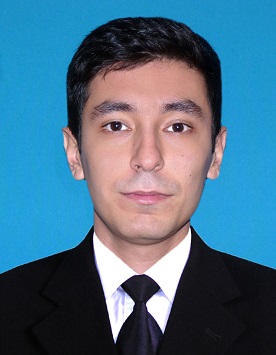-
About
- Our Work
- Get Involved
- Stay Updated
Youth in agriculture: it is time to act
 Generally, young generation and agriculture – two word combinations that are not completely moving in unison nowadays.
Generally, young generation and agriculture – two word combinations that are not completely moving in unison nowadays.What is the reason for that? What kind of boundaries and barriers exist?
I have always been an active supporter of young scientists’ exclusive role in developing agricultural research. This is mainly done in order to struggle with basically two challenging stereotypes causing the issue of youth participation in agricultural research:
- Young people play secondary role in key processes – they are “chickens” rather than “eagles”;
- Youth are inexperienced and “too young” to contribute efficiently.
Furthermore, I have been actively engaged in the online consultations on various themes of discussions. And every time I am involved in them, the problems of youth’s engagement are frequently been highlighted.
Is that coincidence? I do not think so ;)
As it is known, the GCARD Roadmap has identified the importance of youth engagement in AR&D process by stating that “Agriculture is an ageing and undervalued profession in many countries and special attention must be given to encouraging young people into careers in all aspects of AR4D” (The GCARD Roadmap, 2010). This principle has already been practiced in a global scale bringing highly positive and promising results for years. Nevertheless, it is pity to note that on national and regional levels, the voice of youth and their attraction to agricultural science and farming requires massive reconsideration.
We have to deliver that the relevance of agricultural education and training is high, especially among young scientists and farmers. Sustainable productivity growth in agriculture represents a knowledge intensive undertaking, the success of which hinges on the development of the capabilities of the actors primarily involved. Fostering the education and development of the ability of young people to innovate, to solve new problems as they emerge in a volatile environment, and to engage with other stakeholders ? from researchers and policy makers to retail buyers — is at the heart of agriculture development.
For instance, in many countries of the CAC region, agricultural education and training have been neglected. Low levels of general education in the farming population of developing countries can also be an obstacle to adaptation. A broader approach to, and a new emphasis on agricultural education and training is required for two reasons:
- Firstly, there is a need to provide young scientists, farmers and rural small and medium enterprises (SME) with the skills, understanding and innovative capacity that they require to practice sustainable agricultural intensification and market oriented activities. Strengthening individual capabilities is important for all aspects of farm and business management. Moreover, human capital development, including health, nutrition, education, and skills development is essential to increase farmers ‘productivity in agriculture, as well as their ability to seize decent non-farm employment opportunities.
- Secondly, there is a need to train a new generation of agricultural specialists, scientists and service providers who can work with smallholders in new ways to develop the skills needed to make sustainable agricultural intensification work.
Sustainable agricultural intensification and agricultural innovation system must be recognized and presented as modern and profitable, so that the aspirations of rural youth ? young scientists and farmers of both gender can converge around this.
By doing this, in my point of view, we can reach the adequate and serious attitude expressed by scientific world to the youth involvement in AR&D process.
How can we manage to do this?
Perhaps, the most challenging and at the same time crucial point in realization of the aims mentioned above is attracting investment and donor’s attention followed by a serious approach of the GFAR regional foras across the world.
No doubt, young people are extremely enthusiastic and have a wide range of creative and innovative approach tools towards agricultural research for development. But without significant financial support, this stakeholder group is not able to realize its full potential.
The first huge step currently is to emphasize this issue on a GCARD3 global event which includes the consultation process focusing on stakeholder and partner priorities and based on national and regional stakeholder consultations.
Definitely, the bright future awaits us as the young generation has the capacity and potential to fully provide it. All we need to do is ensuring a supportive shoulder.
This blog post is part of the GCARD3 Youth blogpost applications. The content, structure and grammar is at the discretion of the author only.
Tags:About the author
Author's recent posts
More posts from authorRelated Posts
Comments
No comments made yet. Be the first to submit a commentBy accepting you will be accessing a service provided by a third-party external to https://www.ypard.net/
Get in touch
Email: [email protected]
YPARD Global Coordination UnitHosted by AGRIDEA and the Czech University of Life Sciences Prague
Lausanne, Switzerland and Prague, Czech Republic - Our Work

 Generally, young generation and agriculture – two word combinations that are not completely moving in unison nowadays.
Generally, young generation and agriculture – two word combinations that are not completely moving in unison nowadays.